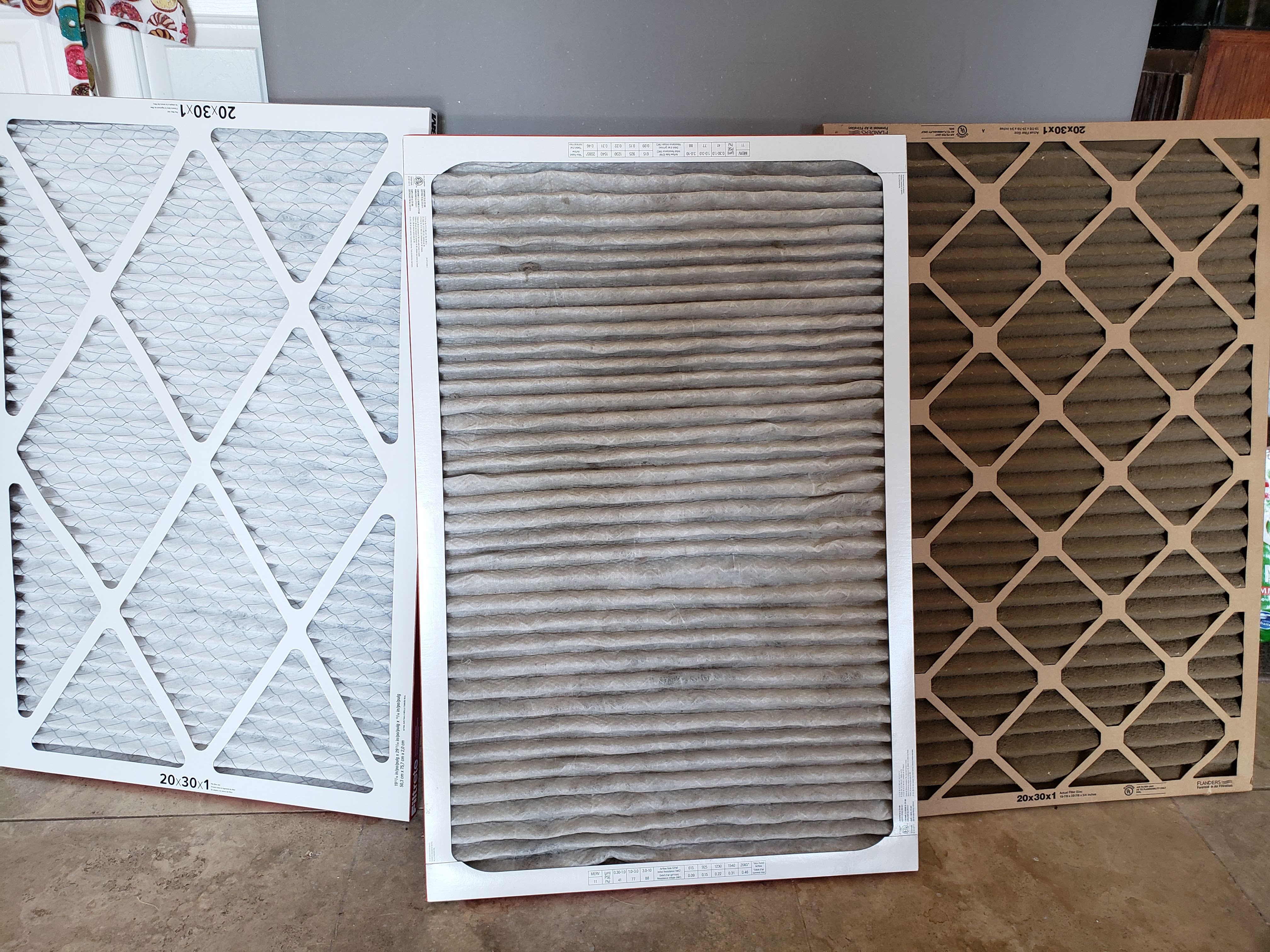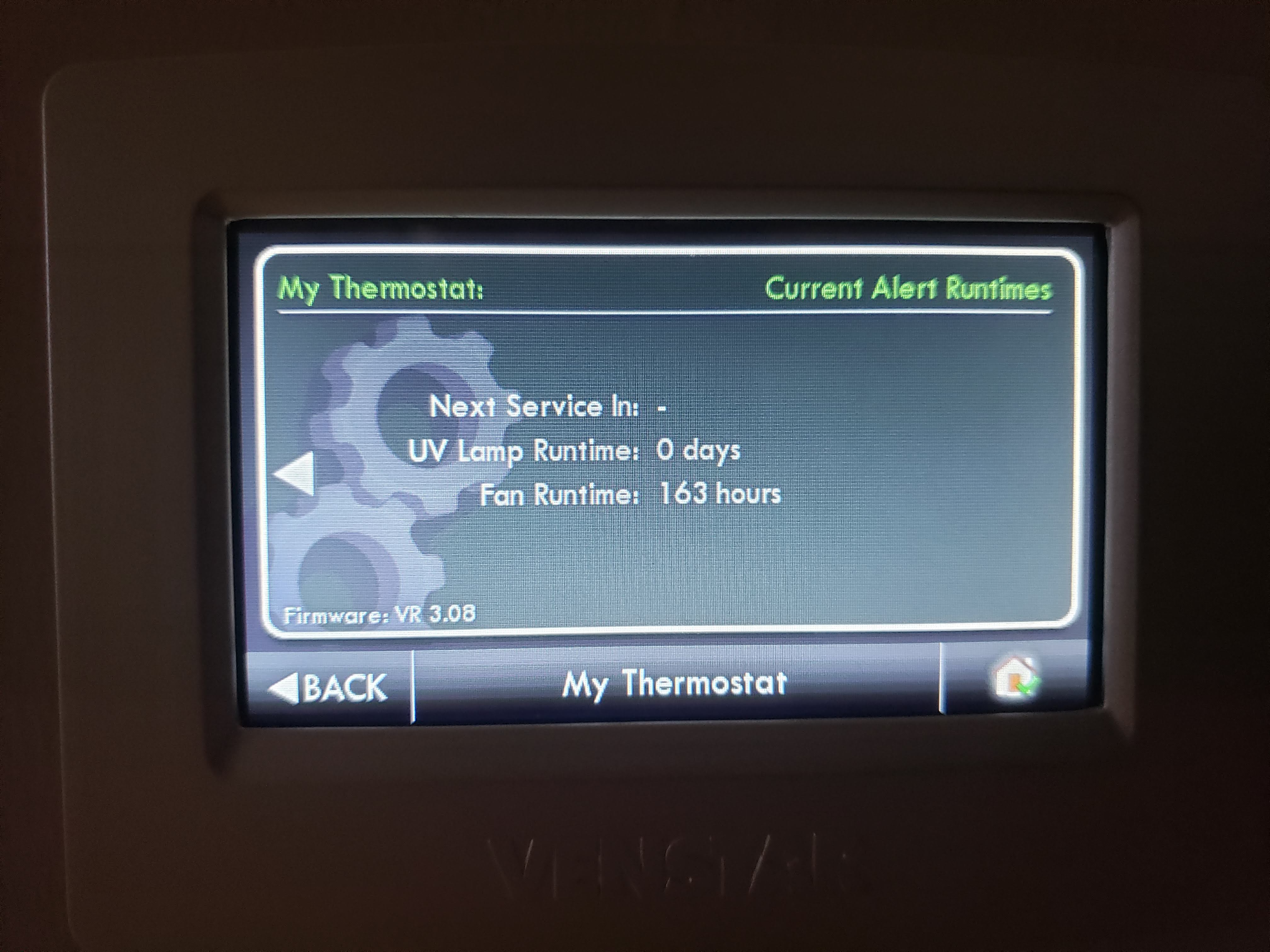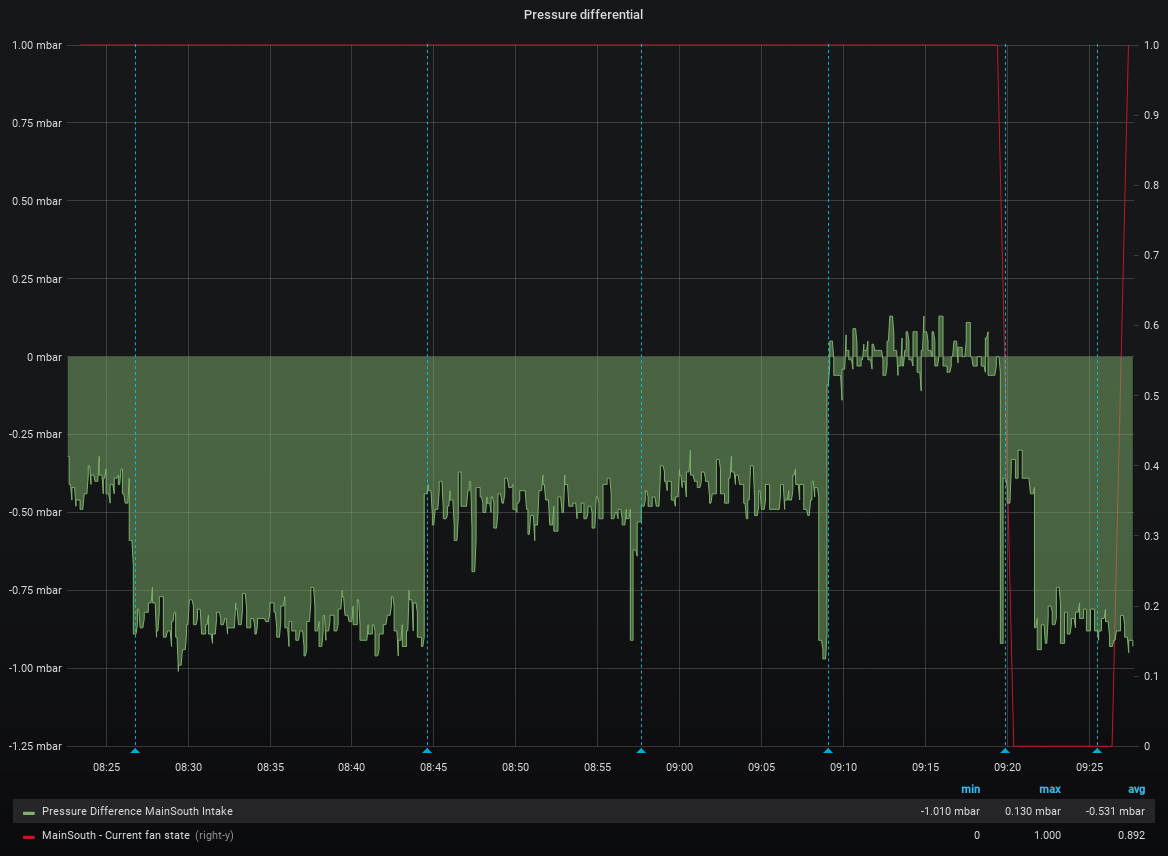So here is the experimental setup:
- Remove the filter, shut off the AC, turn the fan on.
- gather data for 10 minutes.
- Place brand new filter in for 10 minutes and gather data.
- Place existing filter in for 10 minutes and gather data (medium dirty).
- Place super nasty filter in for 10 minutes and gather data.
- Shut system down
So lets start with a few bits of data. First, here are the graphs for the event. This is an exported grafana dashboard that will let you see the data and zoom in, etc etc.
Live Grafana dashboard of experiment
Now for the filters:

From left to right, brand new 3M, used 3M, super nasty off-brand. Sadly, I did not have a dirty 3M lying about. Wait a month. :)
And just a tiny bit of data on the used 3M filter:

The thermostat, by default, comes configured to alert me at 90 days, or 300 hours of FAN runtime. It tracks the hours of runtime of the fan itself, between times that I click "changed filter". So I know this filter is about 50% "dirty" by it's standards.
Now lets look at the data, because this was both fun, and surprising.

Here we have a graph of the pressure differentials between the different stages of the experiment. I've noted with the blue lines, each phase. The phases in order are:
- No filter at all, AC off, FAN On.
- Brand new filter
- Medium filter
- Dirty Filter
- System returned to normal
- Resume normal AC operation
And now drumroll... the data (averages over each time period):
| State | Pressure difference (mb) | Power Draw (W) |
|---|---|---|
| No filter | -0.856 | 456.61 |
| New Filter | -0.479 (0.377 adjusted) | 433.02 |
| Medium Filter | -0.429 (0.427 adjusted) | 430.51 |
| Dirty Filter | 0.009 (-0.438 adjusted) | 387.03 |
So I still need to pore over this a bit, and do some thinking.. but I can see a few things:
- The dirty filter was obvious. Massive difference between it and no filter.
- No filter gives us the baseline calibration difference of the two sensors from one another. Again, they are accurate to movement, just not calibrated. The adjusted numbers show the difference from the baseline of no filter.
- The power draw figures completely amazed me. I thought it would be the other way around. The dirty filter uses LESS power. Wow. No idea.
- While the medium filter isn't exactly that dirty, still, I expected a little more of a difference.
What does all this mean? I think I need to keep this experiment going, for a long period of time. I need to collect data over the next 150-250 hours of runtime on the current filter. How does it change over time? The super dirty filter was an abomination, so it was expected to show an incredible difference (a 0.8 mb difference!).
Initial thoughts:
Yes. I can see the difference from the various filter states. There isn't a massive difference between clean and somewhat dirty, but in theory, if we went the whole 300 hours runtime, it might be as high as 0.1mb.
I do not yet know the answer, when should I change. I feel this will require longer term study of filter as it dirties.
The power draw also seems to be a really decent indication. The difference between clean and medium was only 3 watts, but the dirty one was a whopping 46 watts. That means it moves as dirt gets in there. It might even be an easier way to track this, than the pressure sensor setup.
None of these, not even the super dirty filter, moved the gas sensor on the BME680 at all. It is definitely not picking up "dirt".
 Tim Rightnour
Tim Rightnour
Discussions
Become a Hackaday.io Member
Create an account to leave a comment. Already have an account? Log In.
Makes sense like that. I think my assumption was it would attempt to do a constant RPM, and therefore need more juice to create the higher suction.
Are you sure? yes | no
It's not that the fan spins slower - it could actually spin faster. Exactly what it does depends on the torque/speed curve of the motor itself and how much you actually change the load by. The thing most people are used to is the case where you block the inlet on a vacuum, and the motor spins much faster. No air to move = no load = fan spins at no-load speed, and consumes very little power.
But at a minimum, the power the fan consumes is related to the power it delivers, which is torque times RPM. And if it's delivering less power (less load) it's probably consuming less as well.
Are you sure? yes | no
Thanks, I appreciate the explanation. I think I understand that much better now.
Are you sure? yes | no
"The power draw figures completely amazed me. I thought it would be the other way around. The dirty filter uses LESS power. Wow. No idea."
Windmills generate less power with less wind, right? Fans use less power when they push less air.
Are you sure? yes | no